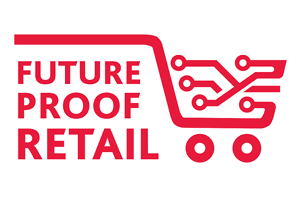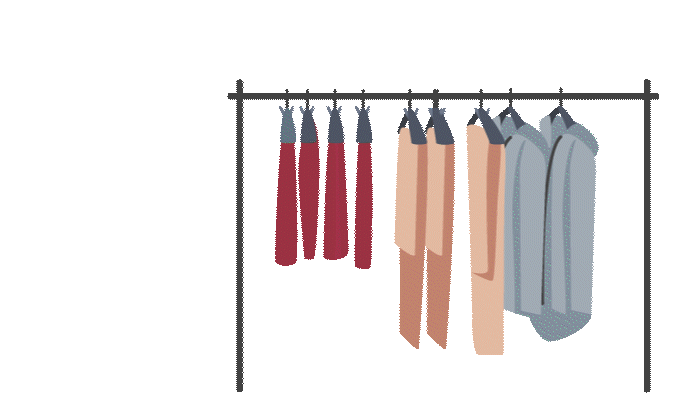AI Personal Stylists

Curating the Perfect Shopping Experience with AI Personal Stylists
Blue or gray? Or maybe the beige shirt would look better. Would a jacket help? What style, though? Having been invited to speak at your company’s national conference next week, you’re in a bit of a fashion quandary. With time running out to pick your wardrobe for the event, you’ve begun to overthink everything from the color of your shirt to whether your collar should have buttons. You haven’t even had time to go to the store; with so much to do, shopping online is your only option.
As the questions race through your mind in rapid succession, your personal stylist suddenly makes a suggestion: What about something a bit bolder, like a deep green? It would match the earth-tone jacket you already own and fit well with the event’s theme of “the natural world.” It’s not an option you had been considering, but find it matches your aesthetic perfectly — almost as if your stylist knows what works on you better than you do.

In a way, it does — because this is 2048, and your personal stylist is an artificial intelligence program that’s learned from and adapted to your style choices and preferences. But how does it fit? With a quick tap on your phone screen, you switch the shirt your virtual avatar has on. Without ever leaving the comfort of home, you have the ability to view every piece of clothing in the retailer’s inventory on an exact digital replica of yourself — your digital twin — instantly. Of course, with thousands of options to choose from, your AI stylist has curated a selection of outfits tailored just for you.
As you cycle through different outfits, your AI stylist continues making recommendations and adjustments, showing you exactly what you’ll look like in various combinations of shirts, pants, shoes, jackets, and accessories. And since your stylist knows your exact sizes and measurements, you know that everything is going to fit exactly how it looks on screen.
Just before you’re about to check out, you notice the blazer sitting on the back of the dining room chair. You snap a quick photo, upload it to your stylist, and ask it to put one last outfit together. Within seconds, your digital cart is full, and you can get to work on your presentation for the conference.
Looking into the Crystal Ball of the Fashion Future
When customers know what they want, it creates a win-win for retailers and shoppers alike. Rather than browsing without a clear goal in mind, customers who have a curated fashion selection available to them are more likely to make a purchase. According to Forbes, 91% of consumers said they were more likely to shop with businesses that knew their preferences, and 63% of companies surveyed in another study said they saw an increase in sales conversions after applying personalization measures.
In addition to creating a more pleasant shopping experience for customers and increasing the likelihood of a sale, retailers can gain another critical advantage. By employing data-driven insights into their customers’ preferences, stores are able to better align their inventory and stock the items most likely to sell. This helps cut out some of the guesswork as stores attempt to stay on top of fashion trends by taking data insights straight from the most reliable source — their customers.
This isn’t some far-off future. AI’s rapid proliferation is accelerating, and as algorithms and models continue advancing, the ideas of today are becoming tomorrow’s reality. Retailers that want to keep pace with their competitors can help to future proof their operations by embracing the possibilities AI offers. That means going beyond AI’s application in processing and analyzing data. Although that function remains a critical use case, retailers should also direct their attention toward AI’s capabilities in improving the customer experience. Just like traditional brick-and-mortar locations have an aesthetic that showcases a brand’s identity, retailers can leverage AI to reinforce their brand — but with one critical advantage. Technology like an AI stylist means that unlike a physical store location that’s the same for everyone who walks in, the digital storefront can be customized for every customer.
Some apps are already bringing AI stylists into the current retail landscape, offering unprecedented insights into consumer preferences. But unlike other forms of AI that require gathering data from a broad range of sources and analyzing it to draw conclusions, AI stylists are built to be personalized assistants that shoppers actively engage with. In other words, consumers are willingly providing data in order to receive a direct benefit. That means retailers can spend less time trying to figure out what their customers want and more time getting it to them.
Curious how you can connect with your shoppers more effectively? Read more about how AI can help businesses understand their customers and drive better experiences.
You Can’t Spell Agility Without AI
AI moves fast — really fast. It also iterates upon itself frequently, adding new features, improving existing ones, and adapting to new applications in subsequent versions. Large organizations can sometimes struggle with the agility necessary to adopt new technology from the get-go, but they have the resources to take advantage of it once the tech is up and running. On the other hand, smaller organizations are often more agile in their approach to new tools, but may lack the infrastructure to make the most of the insights AI can bring.
Right now, organizations need to gather, analyze, and act upon data that is largely derived from second and third party sources to deliver targeted products to their customers, but AI can change that in the future. AI-powered virtual stylists help shoulder much of the data gathering and analysis with the added benefit of shifting the data collected to a first party source, meaning it comes directly from consumers, and they do so in a highly efficient way. This means retailers can focus on the critical element of delivery. As a result, retailers can spend more time on cultivating a memorable customer experience, fulfilling orders, and exploring new ways to enhance their operations.

Insights from an AI stylist have the potential to benefit retailers of all sizes, from major e-commerce operations to small, boutique stores. Rather than undergoing a full-scale process change, large retailers can consider partnering with a bespoke app provider that has already developed an AI stylist, integrating it into their existing platform. In that way, the business is able to continue fulfilling orders with the speed and quality that are their traditional strengths while taking advantage of the consumer data provided by a third-party AI. The retailer gains the immediate benefit of the tool while having the option to further integrate the technology’s capabilities internally or develop its own version of an AI personal stylist without a need to rush development.
A smaller retailer may want to consider a different approach. Boutique fashion is often targeted toward a specific consumer, and with hyper personalization already a part of the operating model, integrating AI stylists can be seen as a natural progression of their existing business model. Their size can also make integrating a new tool in-house more efficient, because there are fewer employees to train and small retailers may be able to roll out the service faster. Partnering with a third party and licensing its services can also remove the expensive development costs for an in-house solution.
Ready to make the most of AI in your business? Get started with our Retailer’s Guide to Applying AI.
How BDO Can Help You Embrace the Future in Style
BDO’s experienced, knowledgeable professionals can help your organization with AI implementation, no matter your size. Whether that’s something like bringing in the burgeoning advancement of an AI virtual stylist or taking advantage of our established Intelligent Virtual Assistant (IVA), we can offer guidance to address use cases most relevant to your business.
Learn more about how we can help your organization strategically apply AI to your business no matter where you are in your AI journey.
Want to stay on top of what’s next in AI?
BDO’s Retail and Consumer Products professionals understand AI’s impact and how to help your organization use it to drive a deeper connection with customers.